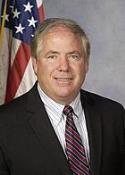By Michael J. Driscoll
The new year will bring Philadelphia our best chance ever to close our city’s digital divide, which excludes too many Philadelphians from opportunities for education, jobs, healthcare, career training, entrepreneurship and civic participation.
Launching in January as part of President Biden’s bipartisan infrastructure program, the $14.2 billion Affordable Connectivity Program will make 2,917,000 Pennsylvanians – 23% of our population – eligible for monthly help to buy home broadband service.
Now that COVID-19 has moved our lives online, universal broadband connectivity is an idea whose time has come. As with so many groundbreaking social programs – from the Affordable Care Act to the Earned Income Tax Credit – we must organize on the ground to ensure that every eligible household signs up.
As a bright young staffer in President Kennedy’s administration, the great scholar-statesman Daniel Patrick Moynihan helped pioneer the idea that modern social programs must be not only people oriented but data driven. And make no mistake: In the wake of the ACP’s creation, the data tell us clearly that broadband adoption – not availability or affordability – will be the major obstacle we now must overcome to achieve universal connectivity.
First, the good news: 99.42% of Philadelphians have broadband on their doorsteps, and 95% of households can choose between two or more broadband providers in their neighborhoods.
In short, broadband is already ubiquitous in our cities and suburbs, and the infrastructure program will wire the remaining unserved rural areas across Pennsylvania and the nation.
Meanwhile, the ACP makes sure that affordability won’t be an obstacle, either. The program makes this commitment to low-income Americans: If your household earns less than twice the federal poverty limit, you can get an up to $30 a month discount on your broadband bill.
Together with private providers’ low-income programs, offering home service for $10 to $20 per month, the ACP will achieve a public policy milestone: Basic broadband service will be virtually free at home for low-income families.
This is a comparable accomplishment to Medicare, Medicaid, rent subsidies and child nutrition. Democrats should shout it from the rooftop. But, first, we must make it work.
And Philadelphians have our work cut out for us. Only 84% of Philadelphia homes are now connected to high-speed internet, even though broadband providers and local leaders all have worked for years to promote high-speed internet subscriptions.
Why won’t so many of our fellow Philadelphians subscribe? And how can we encourage those who have been hardest to reach?
Again, the data speak to us – loud and clear.
According to a study conducted for the City of Philadelphia Office of Innovation and Technology in June and July, only 31% of the respondents had heard of free or discounted service from Comcast Internet Essentials and T-Mobile’s Project 10Million. And a paltry 8% had heard of the PHLConnectED partnership, which offers free home internet for unconnected Philadelphia school students and their families.
More fundamentally, as national surveys show, 71 percent of adults without home internet aren’t interested in connecting. They just don’t think it will make a difference in their lives.
The challenge, and the solution, can both be summed up in one word: Trust.
Non-subscribers tend to distrust large public and private institutions, from federal and municipal programs to internet service providers.
Therefore, our last, best hope is to reach out to people where they live, learn, work and worship and motivate and mobilize them with messengers whom they trust: family, friends, neighbors, clergy, community leaders and teachers. Fortunately, the infrastructure bill provides $2.75 billion for these kinds of digital outreach programs.
Ultimately, we need to persuade people who are unsure about their place in the Information Age that they can face the future with confidence and competence.
A universally connected community will also be a more digitally capable workforce, better connected to the economic opportunities that lie ahead. This truth hits home here in Philadelphia, where information and construction are the only industries that are close to pre-pandemic employment levels.
Can we spread this message of hope and possibility to families who have been locked out too long from Industrial Age opportunities?
In large measure, Philadelphia’s future depends upon our rising to this challenge. Even the most rigorous research needs to translate into tangible results. We need to follow the data, roll up our sleeves and get to work. ••
State Rep. Michael J. Driscoll represents the 173rd Legislative District.





